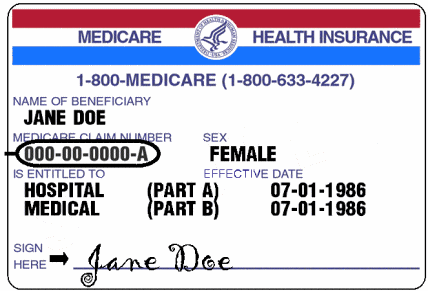Restaurant Meals with Kids – Treat Them to Healthy Teachable Moments
Our kids are growing up with restaurant meals a frequent feature of their food repertoire. That’s truer than ever before. And it’s likely to increase not decrease.
Why?
Restaurant foods, whether you eat them in, take them home or eat them on a ball field, are accessible 24/7/365 today. Our pace of life is faster than ever and  convenience-driven, particularly when it comes to food. The digital age will forge ahead with technologies to make it even easier and less energy expending to order restaurant foods fast. Meals will be ready and waiting for you in restaurants with the touch of an app. You’ll place your order in sit down restaurants with a digital device.
convenience-driven, particularly when it comes to food. The digital age will forge ahead with technologies to make it even easier and less energy expending to order restaurant foods fast. Meals will be ready and waiting for you in restaurants with the touch of an app. You’ll place your order in sit down restaurants with a digital device.
You get the picture.
Pile on the sad fact that kids aren’t learning near enough about how to purchase and prepare foods. They’re lack of motivation is understandable with restaurant foods a plenty whenever, whereever. A catch-22, for sure!
How Much Carb, Protein or Fat? Does it Really Matter for Weight Loss or Keeping Pounds Off?
You hear nutrition experts, or those who tout their nutrition bonafides, set forth a wide range of rules on THE WAY to succeed at weight loss. You’ll hear: eat no more than 40% of calories as carbohydrate, eat plenty of protein or get at least 50% of your calories as carbohydrate and limit fat to under 25% of calories, etc., or should I say ad nauseam.
Research and reality show there’s no ONE RIGHT formula for EVERYONE. Plus, in reality, the debate about the ideal mix of macronutrients (that’s carbohydrate, protein and fat) to eat comes down to a debate about where should 5 to 10% of your calories come from – carbohydrate, protein or fat?
Dialoging: How to Become “The Biggest Maintainer of Weight Lost”
As a dietitian and diabetes educator I know the critical importance of weight control as part of disease prevention and/or control and healthy living. I also know how challenging it is to keep pounds lost ….well, lost forever. It takes inner strength, fortitude, perseverance and much more. Compared to taking the pounds off, keeping the pounds off is THE hard work and it goes on endlessly. Good news is experts say it gets easier over time. In this blog I’m dialoging with Bob Wilson, a dietetic technician in his day job. Bob was a morbidly obese teenager. He weighed 400 pounds in the 8th grade. He lost 250 pounds over 2 years when he hit 21. He has now kept his weight between 155 and 160 for 39 years. He’s been on a remarkable journey. Through his struggle to manage his weight Bob has amassed many learnings and skills and shares these at his website: balancedweightmanagement.com and in his book "Lighter and Free from the Inside Out". Bob wants millions of others to win “The Biggest Maintainer of Weight Lost” award. He graciously agreed to share.
HW Q: You discuss 12 Essential Skills for long term weight loss/control. Can you list the top 5 and briefly state why they’re most important to long term success?
BW: A: My overarching message: for lasting success discover skill power, not willpower!
Obesity Counseling by Primary Care Providers: Wise Move by Medicare or Not So?
A few facts are crystal clear:
 Myriad adults would improve their health status and potential longevity by losing a few pounds. Five percent seems to be the magic number to reap health benfits.
Myriad adults would improve their health status and potential longevity by losing a few pounds. Five percent seems to be the magic number to reap health benfits.- Two thirds of adult Americans are overweight or obese, including many Medicare beneficiaries.
- Losing weight, even a few pounds, and keeping those pounds off is tough work which requires tenacity.
- Primary care providers (PCPs), including general and family practice physicians, nurse practitioners, physicians assistants and others; aren’t known for addressing or spending the time it takes with clients to counsel them on weight control. (In all fairness, they haven’t been allotted the time until now.)
- Susan Yanovski, MD, in her 11/24/11 New England Journal of Medicine editorial Obesity Treatment in Primary Care – Are We There Yet? (abstract), stated: “less than 50% of PCPs report consistently providing weight-control advice to adults and less than 25% report regularly referring people to other providers who may help them with weight control.”
- It’s well known that PCPs receive a minimumof nutritional science in training and it’s highly unlikely that many have obtained the skills known to be effective in weight management counseling from studies on long term weight management.
Yet despite these facts, on November 29th, Medicare (Centers for Medicare and Medicaid Services) announced in their Decision on Intensive Behavioral Counseling for Obesity that it will start to cover obesity counseling services when provided by PCPs (as defined by CMS).
Toward Healthy Lifestyles…It Takes a Village
Let me begin where I left off discussing the study which asked: What's the Diet is Best?, published in the 2/27/09 issue of New England Journal of Medicine.
Health Care Reform - Link and Learn
With all the conversation about the need for health care reform, there are no better places to focus our efforts and energy than on the prevention and better management of diabetes by supporting people's and society's work on living healthier lifestyles. Both obesity, often the predecessor to pre- and type 2 diabetes, and type 2 diabetes eat up a massive piece of the healthcare dollar pie. A focus on prevention of obesity and type 2 diabetes could offer us big benefits for our bucks!

